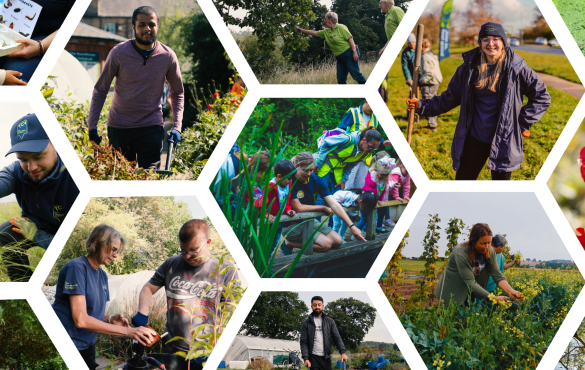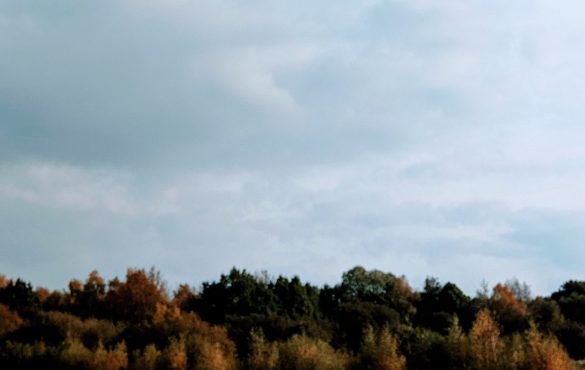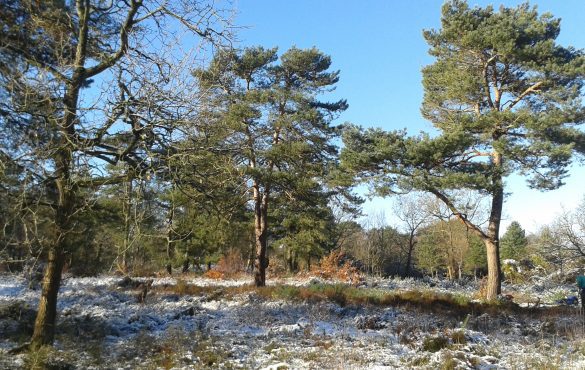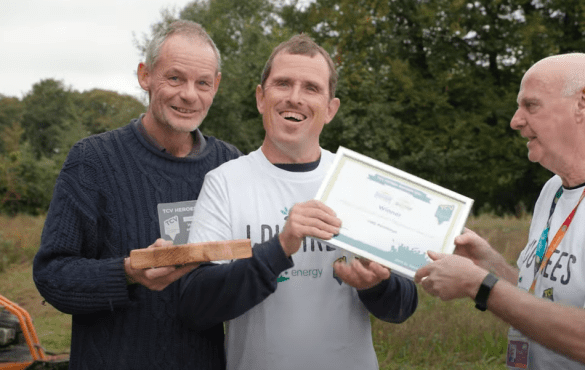The Conservation Volunteers Vice President, Sir David Attenborough once said, “No one will protect what they don’t care about; and no one will care about what they have never experienced”. He was referring to the natural world and the fundamental importance of people engaging with nature to first make a connection, to then understand it, to then want to protect it.
This rings true at all levels, from a toddler searching for a woodlouse on a log in his/her local patch of green space, to an adventurous zoologist researching Lemon Ants cultivating their so-called “devil’s gardens” in the Amazon Basin. Once we experience something and make a connection, we develop a fascination, we begin to care.
This has been an objective of The Conservation Volunteers for many years. Since 1959, our mission has centred around connecting people of all ages with their local green spaces, for the long-term benefit of wildlife, community health and, increasingly, our unsettled climate.

But children in the UK are spending less and less time in nature, opting for more time playing indoors and using computer screens and televisions to learn, perhaps about the natural world, or perhaps more likely, what’s en vogue on TikTok.
Whilst we recognise the challenges that the UK lockdown and homeschooling presents – with many TCVers in the same situation – we can’t ignore the startling statistics that we can help to change:
- Children spend less time playing in natural places, such as woodlands, countryside and heaths than they did in previous generations. Less than 10% play in such places compared to 40% of adults when they were young. Source: Natural England
- On average, Britain’s children watch more than 17 hours of television a week: that’s almost two-and-a-half hours per day, every single day of the year.
British children are also spending more than 20 hours a week online, mostly on social networking sites. Source: National Trust
- As children grow older, their ‘electronic addictions’ increase. Britain’s 11–15-year-olds spend about half their waking lives in front of a screen: 7.5 hours a day, an increase of 40% over a decade. Source: National Trust
And on the flip side…
- Children who spend more time outside (and more time noticing nature / wildlife) are more likely to report that ‘being in nature makes me very happy’ (91% and 94% respectively, compared to 79% of those who had spent less time). Source: Natural England
Its stats like these that motivate us in our work to connect people with nature, whilst improving our local green spaces for all the community to enjoy.

It’s also why we have created these resources (including bug hunting, den building, scavenger hunts, gardening activities and more), to help parents encourage their children to kickstart and nurture a relationship with nature, one which can then hopefully flourish into a little more unguided fashion of cherished hours spent investigating local wildlife, collecting conkers, making dens and, most importantly having fun.
… and this all leaves parents with a little more time. Time to perhaps log on to work for those who are homeschooling or perhaps to simply have a moment’s peace and a cup of tea.
Take a look at our activity resources and crank up your children’s passion for the natural world.
And for those who have (re)discovered your local green spaces during the UK lockdown, think about ways to add these activities to your weekend routine and instill this passion in your children for years to come.

Keep up to date with the latest news and activities from The Conservation Volunteers by following us on Twitter, Facebook, LinkedIn and Instagram. You can also sign up to receive our Greenzine newsletter for more ways to get involved.




